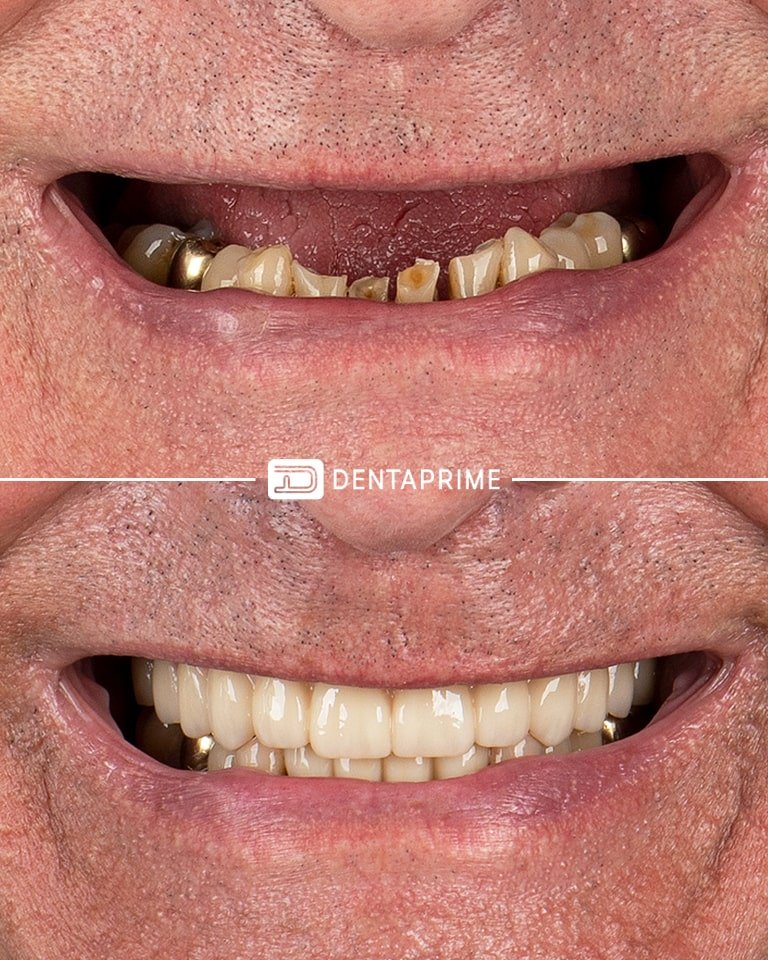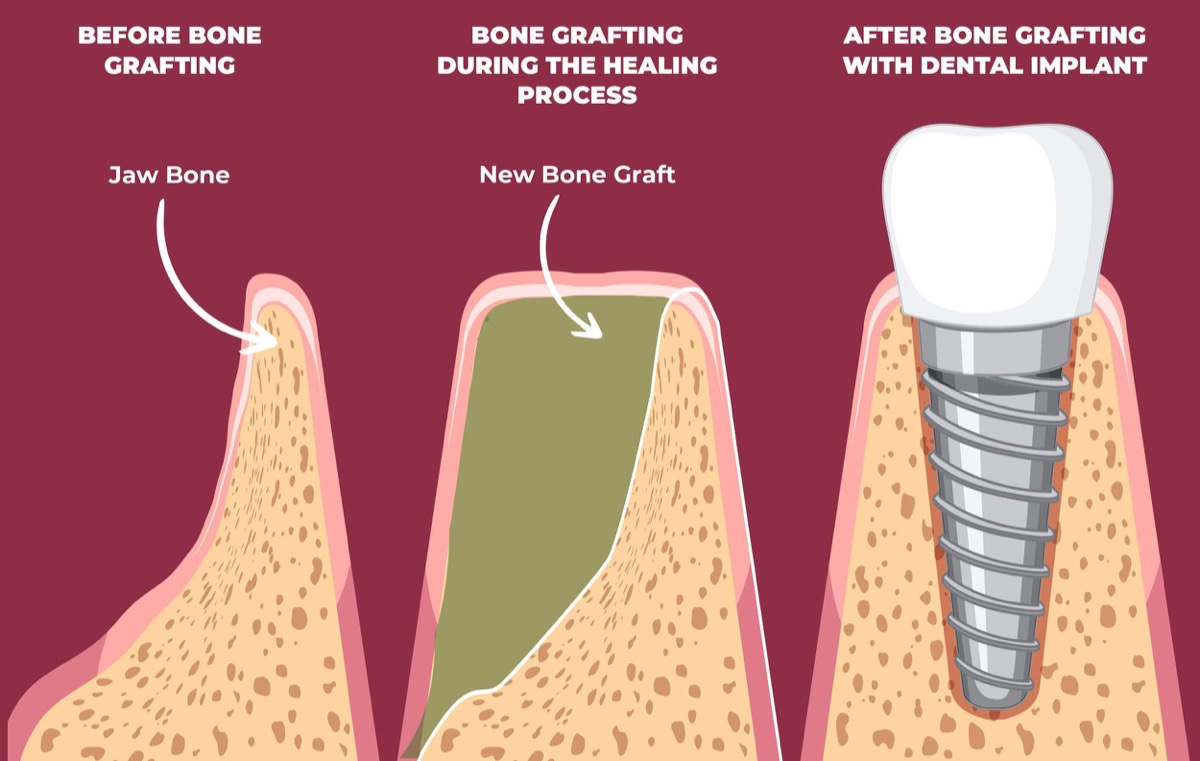The dental health industry has been consistently developing over the past few decades – improved procedures, rapid growth and development have led to faster healing, safer treatments and higher success rates. Back in the day going to the dentist would have been associated with pain and weird smells, especially for people who suffer from severe dental anxiety.
Nowadays, however, when we think of dentistry, we associate it with modern high-tech equipment and facilities, painless treatment and rapid solutions to any dental health issue. If a dental clinic wants to stay competitive in this evolving market, it calls for constant investments in equipment, staff training and materials.

Contents
Why dental implants?
Tooth loss can take its toll on your overall quality of life. If you have been toothless for a while, perhaps you have noticed how negatively it affects different aspects of your daily routine. That can vary from your social interactions – you may often feel self-conscious about people noticing your missing teeth or dislocating your denture. Or, it can strike your overall health. How so? Eating with a denture or missing teeth can be a very uncomfortable or even painful experience. As a result, you are forced to rely on soft foods only which in turn massively limits your food choices.
When this happens you can no longer provide the rich and nutritious diet that your body needs to function properly which harms your gut and overall health. What’s worse, tooth loss is linked to diseases like Parkinson’s, heart disease, Alzheimer’s and more.
The good news is that dental implants can help massively improve not only your health but can make you even look younger because they also help to permanently deal with bone loss.
Here are 4 benefits that you get from choosing fixed dentures on dental implants as a solution to tooth loss:
- They are biocompatible
Titanium implants have been around for decades now. Dental treatments with implants have over 98,5 % success rate and are considered to be one of the safest dental procedures nowadays. Furthermore, with the advancement of technology and fully digital planning, the placement of the implants into the jawbone is done with utmost care and precision.
- They are durable
Although nowadays there are so many types of implants – zirconia implants, zygomatic, basal, mini etc. it was not always like that. In the past dentists relied more on a one size fits all approach to dental implant procedures for toothless patients.
Some 40 years ago, titanium dental implants used to last for about 15 years. Luckily, nowadays with proper care, they can last a lifetime.
- They offer unmatched aesthetics
Zirconia teeth over dental implants offer a wide variety of shades to match every preference. Ranging from natural teeth to a pearly white Hollywood smile, your teeth can be fully customised so that you can smile with confidence again. But the best part of this is yet to come. They also stop the bone loss process effectively and prevent your face from sinking in as opposed to removable dentures.
- They are easy to maintain
Maintaining excellent oral hygiene is an absolute must if you want to make sure that your dental implants last a lifetime. And you don’t even need to do anything too special – just look after them like you did with your natural teeth.

What is bone grafting?
Bone augmentation is a standard procedure that aims to correct the deficiency in the patient’s jawbone. Its main purpose is to create a strong foundation for the implants and ensure the long-term stability of the fixed teeth over them. It is an integral part of dental implant treatment before the placement of the implants whenever needed.
Types of bone grafts:
- Autogenous
- Alloplasts
- Xenograft
- Allograft
How would you know if you need bone grafting?
When you visit the dental implantologist, as a part of the examination, they will do a 3D scan of your jaw. Modern dental technology allows us to assess the jawbone density and establish how much exactly the bone needs to be augmented. We also calculate with precision the number and position of the implants ensuring the successful outcome of the treatment.
Bone grafting surgery is done by making a small cut in the area of the dental implant. Then a powder-like bone substitute material is inserted. This is the best bone graft material for dental implants according to recent studies.
Then we need to wait for 5 to 9 months to make sure that the implant will successfully fuse with the jaw bone. This process is called osseointegration and in most cases, it is needed before the placement of the dental implants.
A sinus lift is a standard procedure that adds bone to your upper jaw in the space between your molars and premolars- on either side of your nose. This type of bone grafting procedure is required when dental implants cannot be placed because of insufficient bone in the upper jaw. Some dental clinics may attempt to avoid it by placing zygomatic implants in the upper jaw.
As a dental practice, we do not use such dental implants. According to research, sinusitis after placing zygomatic dental implants varies from 0% to 26.6%.
Other common complications may include the formation of a fistula, orbital penetration and injury and temporary sensory nerve deficits among others.
Who needs bone grafting?
Here are 4 of the most common causes of bone loss:
- Untreated gum (periodontal) diseases
- Tooth extraction
- Facial trauma
- Other inflammations in the oral cavity
As a result, it can also appear around existing teeth and cause a domino effect.
If you have been toothless for a long time or have been wearing a wobbly denture, you will inevitably need bone augmentation before the actual dental implantation. With our patients’ best interests in mind, we always recommend taking action rather than accepting tooth loss as a part of your life.
The longer you stay toothless, the more advance will jaw bone loss be. This will not only make you look a lot older because it causes your face to sink in but what’s worse, will make your dental implant treatment and bone graft cost more expensive.
Of course, many patients would travel abroad for dental tourism in pursuit of cheaper dental implant treatments in Hungary or Turkey. The most common reasons why countries abroad offer cheaper implants are (but are not limited to) cheaper materials and no bone grafting. Some clinics may choose not to perform this procedure so that they can offer quicker treatment turnaround and cheaper tooth loss solutions with dental implants.
In the long run, however, this affects negatively the success rate of dental implantation as no solid foundation is created for the implants.
Can dental bone grafts fail?
Dental implant treatments with bone grafting have treatment success rates that have been steadily improving over time. Still, bone graft failure is possible if you do not follow your dentist’s healing recommendations. Smokers, for example, fall at significant risk of bone graft failure.
The most common signs of unsuccessful bone augmentation are:
- Acute signs of infection (pain or swelling) over a longer period
- Bone material drainage from the treated site
- Shrinking of the gum (gum recession)
- Lack of visible improvement in the volume of the jawbone
What are the risks or complications of dental bone grafts?
Bone grafting is a routine dental implant treatment that should be generally safe. However, the procedure carries some risks and complications which is why you need to make in-depth research when choosing the right dental clinic for you.
You need to make sure that all dental implantologist are GDC registered.
Among the most common risks of complications that can develop after dental bone graft treatment are:
- Damaged nerves
- Various Infections
- Complications from dental anaesthesia
- Severe bleeding
Bringing it all together
Despite looking invasive and scary dental implant surgery can be a smooth and stressless procedure if you do your due diligence beforehand. If you suffer from acute dental anxiety, make sure you talk to your dentist beforehand. The dental implantologist is the one who has to put you at ease and make you feel comfortable enough to share your thoughts and concerns. Finding the right dentist will make all the difference and will help you go through this major life change without fear. Once you have a clear understanding of the dental surgery process, related risks to dental implants, recovery and aftercare you will be prepared enough to take the next step towards your improved oral and overall health.


